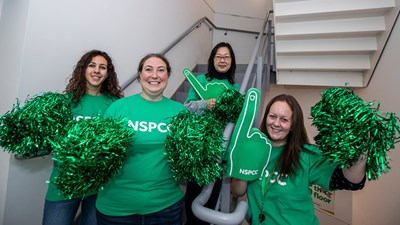Local services
Our services support children and families throughout the country.
We provide therapeutic services to help children move on from abuse, as well as supporting parents and families in caring for their children. We help professionals make the best decisions for children and young people, and support communities to help prevent abuse from happening in the first place.
To do this, we work directly with children and families in our regional hubs across the UK and Channel Islands and through innovative projects such as Together for Childhood.
We also partner with other organisations to help them deliver tried and tested tools and interventions in their local area, helping support even more children and families.
Find out more about our services and how to access them.
Pregnancy in Mind is a preventative mental health service that helps support expectant parents who have or are at risk of mild to moderate anxiety or depression.
It uses a range of approaches including mindfulness, active relaxation and peer support. The service consists of 8 weekly group work sessions that are usually delivered virtually but can be delivered face-to-face in some instances.
Who is it for?
Expectant parents in the 12th-26th week of pregnancy (middle trimester) who have or are at risk of having anxiety or depression.
Where is Pregnancy in Mind available?
Belfast; Cardiff; Foyle; Leeds; Liverpool; Nottingham; Swindon.
Get in touch with one of these teams
Letting the Future In is a service for children who’ve experienced sexual abuse.
It helps children rebuild their lives so they can overcome the past and look forward to the future. It’s a therapeutic service which allows children to express themselves through play. They can work safely through past experiences and start to move on.
We also work with parents or carers, to help the whole family.
Who is it for?
Children aged 4-17 who’ve been sexually abused can be referred to this service.
Referrals can also be made for children and young people with mild or moderate learning disabilities up until the age of 19.
Where is Letting the Future In available?
Belfast; Camden; Cardiff; Foyle; Jersey; Leeds; Liverpool; Plymouth; Swindon.
Get in touch with one of these teams
Infant and Family Team is a service that helps social workers and judges decide whether a child should stay with their birth family or enter care permanently.
Moving in and out of care is very disruptive and can have long-term effects on a child’s mental health. But some effects can be prevented if they’re placed in a secure, loving home early in life.
Who is it for?
We work with the birth parents and foster carers of children aged between 6 months and 5 years old. The children must be in local authority care for the first time, in a foster or kinship care placement.
We help parents to understand the effects of their own early experiences, recognise the importance of their role as parents, learn ways to make sure their children are safe and protected, and access associated support, such as alcohol misuse services.
We also support foster carers, helping them to meet the needs of children in their care.
Decisions about who the child should be permanently placed with are only made after the treatment phase. This decision is based on whether the parent is able to build their relationship with the child.
Where is the Infant and Family Team available?
Camden; Glasgow.
Get in touch with one of these teams
The Lighthouse provides support to children and young people who have experienced sexual abuse to help them recover.
An advocate works with children and their families to access the services and support they need, when they need them. This includes working with doctors, nurses, play therapists, police, psychiatrists, and therapy workers. These specialists are all based in the same building, so children and young people don’t have to keep telling their story again and again.
Find out more on The Lighthouse website.
Who is it for?
Children and young people in Barnet, Camden, Enfield, Haringey and Islington. The service is also for adults with learning disabilities aged 18-25.
Where is The Lighthouse available?
Camden.
Being made to go to court can be very scary for a child. Our Young Witness Service supports young people who have to attend court as a witness.
The service can reduce the stress they experience, prevent further trauma and help them give the best evidence they can.
Watch the video above to find out more about how the service works, and how it helps young people avoid more stress.
Who is it for?
We provide support in Northern Ireland for young prosecution witnesses (under 18), in all types of criminal cases, as well as their parents or carers.
How The Lighthouse helps
Getting the right support when a child has been abused is so important. But after sexual abuse, children and their families often struggle to navigate health and social care, therapeutic services, police, and often, the criminal justice process by themselves.
That’s why we’re proud to have helped launch The Lighthouse, the UK's first Child House. It's the first centre in the UK to bring multiple agencies together under one roof to provide a child-friendly, multidisciplinary service for victims and survivors of child sexual abuse and exploitation. Based in Camden, it serves the London boroughs of Barnet, Camden, Enfield, Haringey and Islington.
The Lighthouse is delivered by University College London Hospital NHS Foundation Trust (UCLH) in partnership with the NSPCC and the Metropolitan Police. As part of The Lighthouse’s therapeutic services, the NSPCC offers our Letting the Future In intervention.
"The Lighthouse has been a little bit of refuge."
Parent in London
When a child has experienced sexual abuse, they and their family are often left to navigate finding the right support for their child alone. From health care professionals, social workers, therapists and the police – this frequently means the child has to re-tell and re-live their experience with each agency or professional, risking being re-traumatised by the process.
The Lighthouse is based on the international Child House (Barnahus) model, established in Reykjavik in 1998. This model is child-centred, allowing medical and sexual health professionals, counsellors, therapists, and the police to work together under one roof – guiding children, young people and their families through their journey of recovery, helping them access the support they need at every step, including the court process.
"I only have to tell the story once."
Child using The Lighthouse in London
In London, where The Lighthouse is based, research has identified a “significant unmet need” for emotional and health support for children who have experienced sexual abuse1. Those who do sometimes have to wait months to receive therapy and the support they need. One study found that 8 in 10 adolescents who experienced sexual abuse had mental health problems 4-5 months after the assault2. That is why it is so important children get the help they need when they need it.
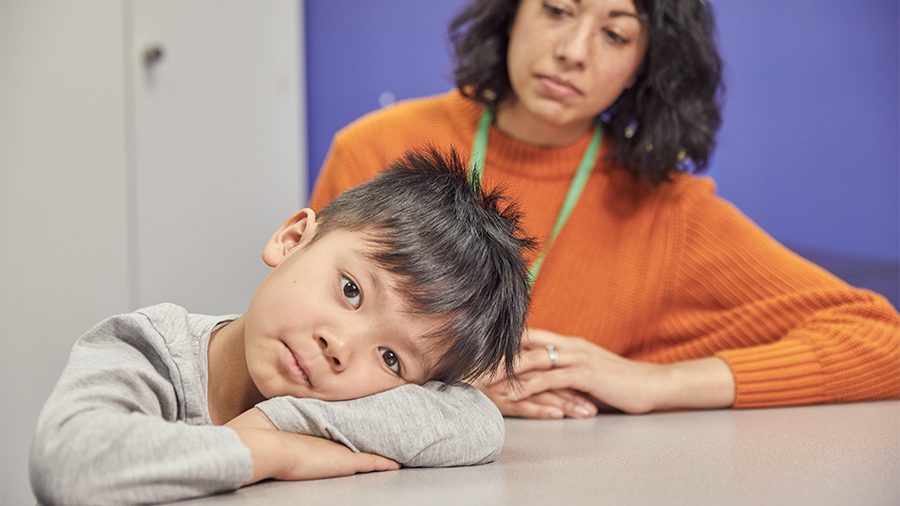
In 2019/20, The Lighthouse received 321 referrals, meaning approximately 1 in 2 children in North Central London who reported sexual offences were referred there for support.3 The Lighthouse team were able to accept 258 of those referrals, supporting children and families through this difficult time.
The team regularly ask children and their parents what they like about the service centre. Children felt that at The Lighthouse:
- their views were taken seriously
- they were listened to
- the practitioners were easy to talk to
- The Lighthouse teams were working together to support them.
"I like the way I can talk and be advised and listened to. I can also talk about what I’d like to talk about."
Child using The Lighthouse in London
The majority of parents and guardians that fedback to us felt the services they received were good, and felt supported by The Lighthouse.
"I don’t know how my family would have got through this trauma without this service. Truly amazing."
Parent in London
The Mayor of London’s Office for Policing and Crime is evaluating the Lighthouse and has published 3 reports to date, with a final report due in Summer 2021.
- The Lighthouse: London's Child House - Initial Evaluation Report
- The Lighthouse: 9-month interim evaluation report
- The Lighthouse: 2-year interim evaluation report
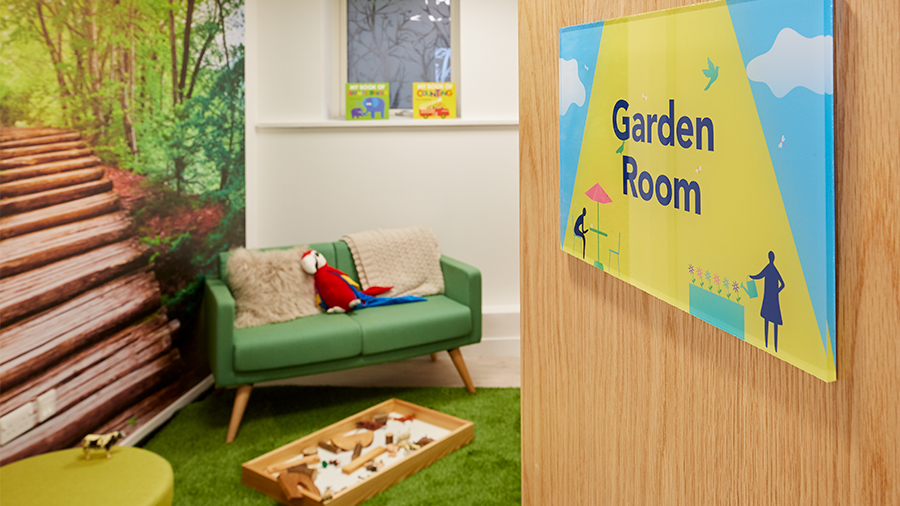
We believe every child should have the support they need after facing sexual abuse. Being a partner in The Lighthouse has shown us the difference a Child House can make for young people who've experienced abuse and we're pleased that funding for The Lighthouse in London has been extended to March 2022.
"Think it’s a great service dedicated to young people and their families. Should have more around the UK"
Parent in London
Given the success of The Lighthouse in London, we’ll advocate nationally for the benefits of this model and campaign to have new sites funded and built across the UK.
With support from government and commissioners, we can make the Child Houses model an integral part of the support and services available to children who’ve experienced abuse.
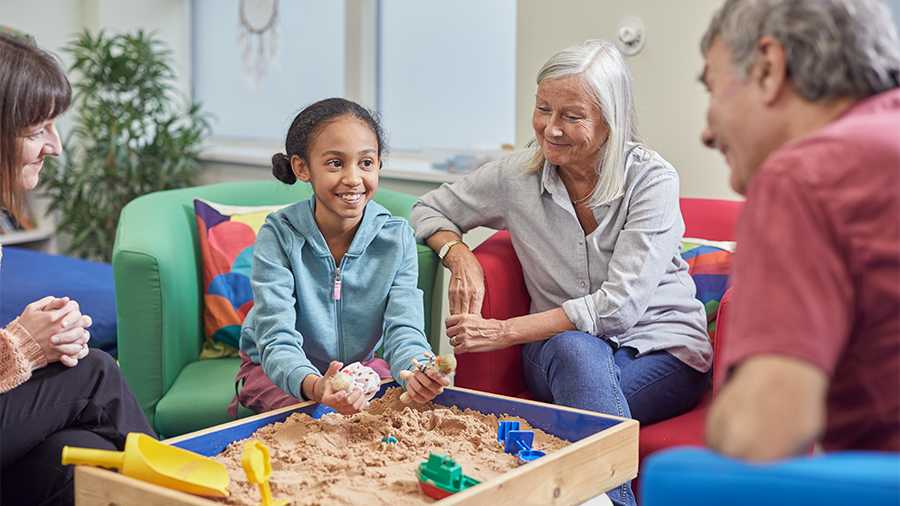
Thanks to the Home Office, The Mayor of London’s Office for Policing and Crime, NHS England, the Department for Education, charity partner Morgan Stanley (who raised over £1.5m) this multi-agency project was brought to life. The generous funding the project received helped to refurbish and transform the NSPCC’s service centre in North London.
£25 could pay for toys for children to use during therapeutic sessions to help explain how they’re feeling. Around 90% of our income is donated - we can only be here with your help.4
Hear from some of the people we've helped
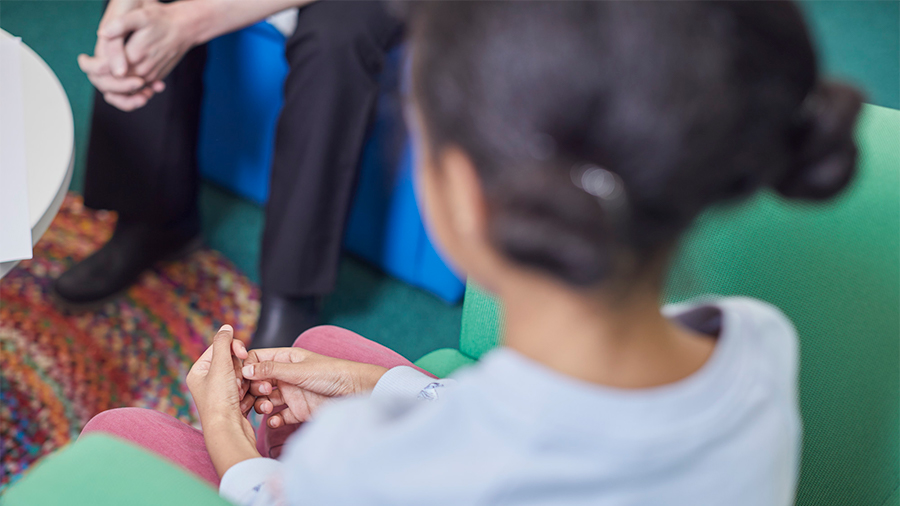
"I like the way I can talk and be advised and listened to. I can also talk about what I’d like to talk about."
Child using The Lighthouse in London
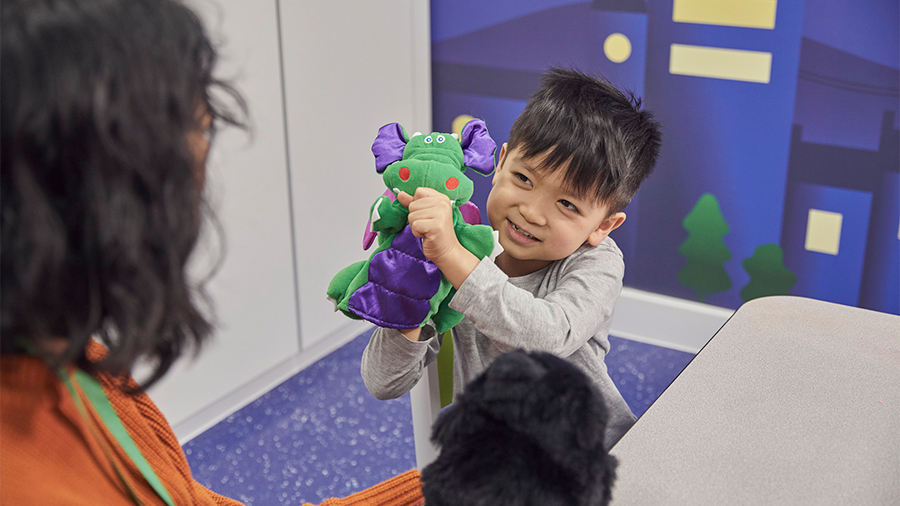
"Relaxed and calming place with understanding people very keen to help and reassure."
Parent in London
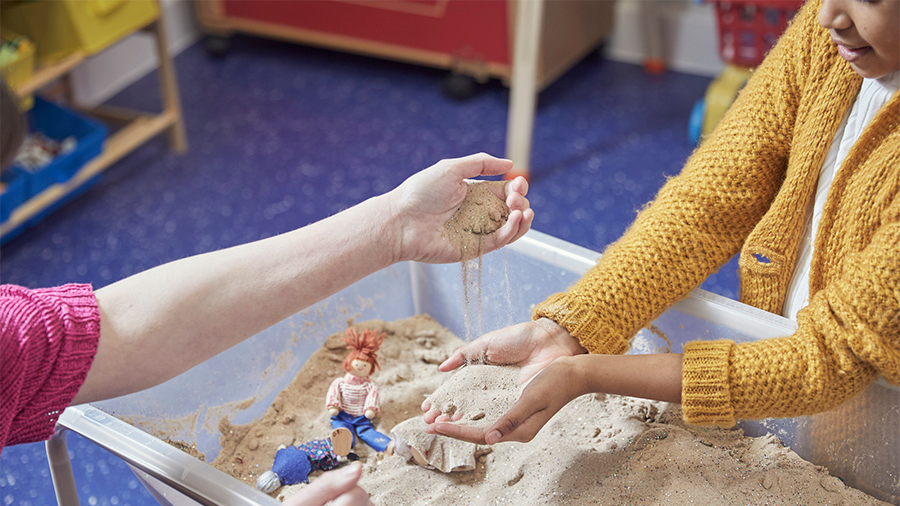
"Even though my situation may have made my mother sad, now I can tell her anything and you brought us closer together."
Child using The Lighthouse in London
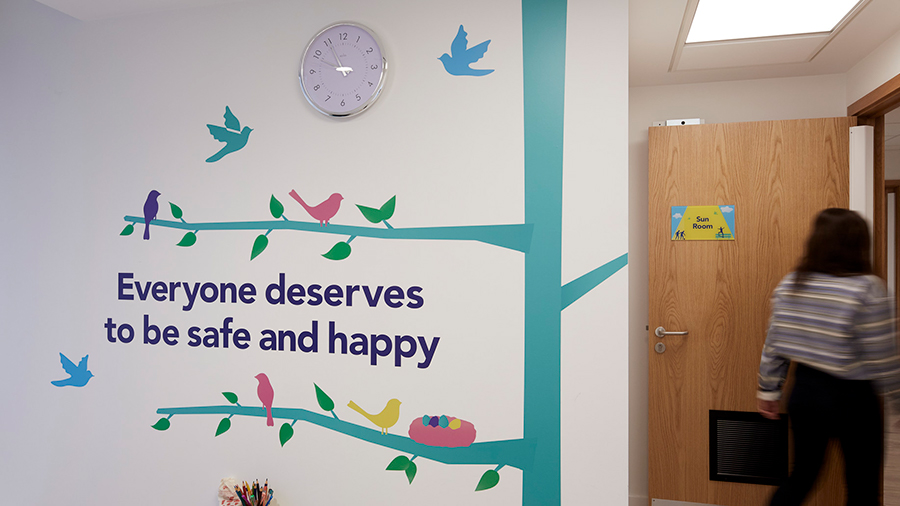
"A welcoming friendly environment with a family feel rather than a stuffy office."
Parent in London
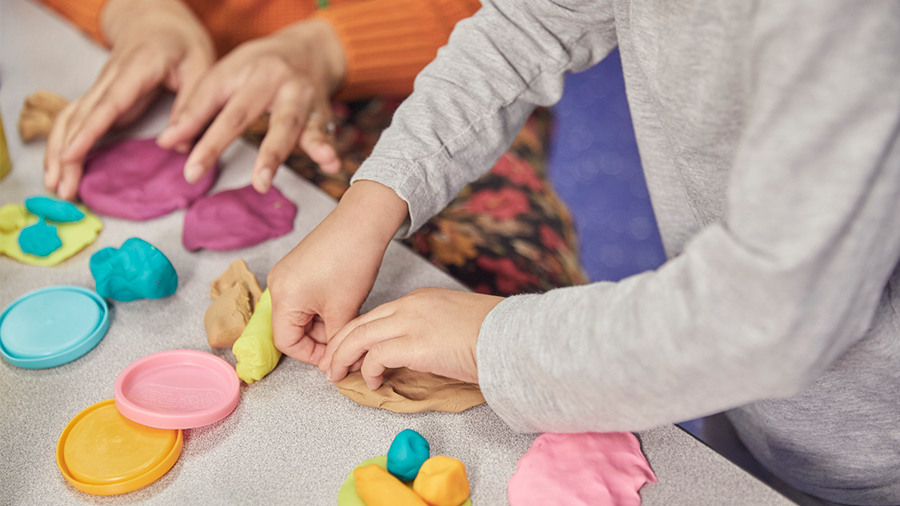
"In the Lighthouse they made me feel comfortable and made me feel open about my opinions."
Parent in London
The National Clinical Assessment and Treatment Service (also called NCATS) works with children and young people at risk of harming other children sexually.
We run this service because children and young people with harmful sexual behaviour harm themselves and others. Those who develop harmful sexual behaviour have usually experienced abuse and neglect themselves.
Depending on the results of the assessment, we might recommend treatment or care that works with the young person on their own, or with the family.
Who is it for?
Children and young people up to the age of 21 can be referred to NCATS for reasons such as:
- they have a history of harmful sexual behaviour
- they have convictions of sexual offences.
Treatment is tailored to the child, so the length of time we work with them depends on their needs.
Where is NCATS available?
NCATS is based in Camden, north London, but is available nationwide. Get in touch to find out more by calling 020 3772 9905 or emailing NCATS@nspcc.org.uk.
How we’ve made a difference to children’s lives
You may also be interested in
How you can help us in our work
*DISCLAiMER
Names and identifying features have been changed to protect identity. Photographs have been posed by models.
References
-
1. Goddard, A., Harewood, E. and Brennan, L., (2015) Review of pathway following sexual assault for children and young people in London. NHS England, The Havens, Kings College Hospital London.
-
2. (Khadr, S. et al. (2018). Mental and sexual health outcomes following sexual assault in adolescents: a prospective cohort study. The Lancet Child & Adolescent Health, 2(9), 654-665.) Baseline interviews (T0) were done less than 6 weeks after an assault to collect data on sociodemographic and assault. At T0, psychological symptom scores showed that 115 (88%) of 130 females were at risk for depressive disorder, 90 (71%) of 126 were at risk for anxiety disorders, and 116 (91%) of 128 were at risk for post-traumatic stress disorder, with symptoms largely persisting at T1. 68 (80%) of 85 females who had a diagnostic assessment at T1 had a psychiatric disorder, with multiple disorders in 47 (55%) of 85.
-
3. Harewood, E. (2021) The Lighthouse annual report 2019-2020. London: The Lighthouse https://www.thelighthouse-london.org.uk/wp-content/uploads/2021/04/Lighthouse-Annual-Report-2020-web-version.pdf The data analysed includes Excelicare records of children and young people aged 0–25 years old referred to the Lighthouse following disclosure or suspicion of child sexual abuse. The data relates to all 321 referrals and 198 initial assessments and onward support of children and young people living in the North Central London area who accessed the service between October 2019 and September 2020. Compared with the number of police reports for sexual offences in under 18 years olds, it can be seen that the number of Lighthouse referral rate ranges from 34 to 59% of the total number of sexual offences reported to the police in the borough in the same period (Oct 2019 – Sept 2020). This means the Lighthouse continues to receive referrals for approximately 1 in 2 children and young people in NCL who report sexual offences. 258 (80%) of referrals to the Lighthouse were accepted, allocated to a team and offered either an an initial assessment, consultation or an ABE
-
4. In 2019/20 our total income was £117.6 million. Of this total £93.5 million came from donations and legacies and a further £9.0 million came from activities undertaken for the purpose of raising funds (like dinners and balls, auctions and challenge events). This gives a total of £102.5 million from our supporters, or 87% of all income.








